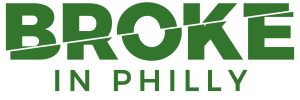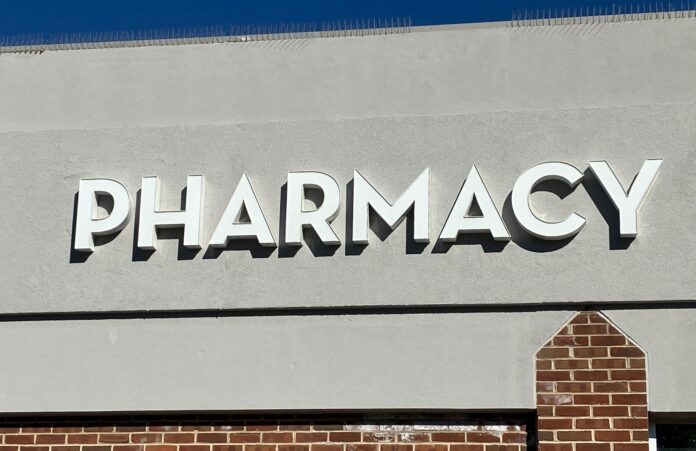As part of the local Ending the HIV Epidemic (EHE) initiative, the Philadelphia Department of Public Health is taking initiatives to make low-barrier HIV testing and linkage to care accessible in certain Philadelphia pharmacies. The Health Department is making available four to six grants of up to $75,000 with the goal of increasing HIV testing availability in Philadelphia neighborhoods that had the highest rates of people newly diagnosed with HIV in 2019.
Applicants who operate both independent and chain pharmacies in designated priority zip codes can submit grants that address HIV testing, information distribution, linkage to care and participation in training. Pharmacies in adjacent zip codes can also qualify provided they are approved by the Health Department in advance.
“The accessibility of pharmacies for HIV testing presents a unique opportunity for pharmacists to contribute to the identification of undiagnosed HIV,” a Health Department press release reads. “An estimated 90% of urban consumers live within two miles of a pharmacy. A CDC-funded feasibility study offering rapid, point-of-care testing in community pharmacies and retail clinics found that pharmacies and retail clinics represent a vast, largely untapped potential for the delivery of HIV testing in settings that are more accessible and, for some people, less stigmatizing than traditional testing.”
Many community HIV advocates and healthcare providers have expressed support for the decision to expand testing, while some also shared additional steps that should be taken.
“Offering HIV testing in pharmacies may identify HIV positive individuals without stigma, especially if the pharmacies are offering COVID and flu vaccine as well,” said José de Marco, founder of Black and Latinx Community Control of Health. “Linking new positives to care will be essential.” De Marco added that pharmacy staff should be trained in maintaining confidentiality and privacy when testing patients for HIV.
“Increasing access to HIV testing by making HIV testing available in neighborhood pharmacies is a smart move,” Kevin Burns, executive director of Action Wellness, said in an email. “Access to HIV testing and providing assistance to link people who test positive to care will be a benefit to the entire community. It will help people who might otherwise not know their HIV status and are HIV positive to access treatments earlier, thereby decreasing transmission rates.”
Dr. Zuline Wilkinson, deputy director of Bebashi Transition to Hope, acknowledged the potential upside of HIV testing in pharmacies, but with a caveat.
“HIV testing in pharmacies may expand the locus of availability of such service,” Wilkinson said in an email. “However it should not happen at the exclusion of community-based organizations that have historically invested in poor communities, mostly people of color that are underserved and essentially erased from public visibility, like Bebashi.”
Luis Couvertier, who coordinates the testing program at Prevention Point Philadelphia, expressed concerns about the potential absence of a doctor on site in the event of a positive test result.
“If there’s nobody there for the client to be linked, that to me is very important,” Couvertier said. “What works for us is that we link [clients] to medical services right away. That means that we have a doctor or nurse practitioner on the premises, and the doctor pulls blood right away, makes sure the person is positive, and then puts them on Biktarvy or any type of medicine that they need to suppress their HIV.”
When a patient gets tested at Prevention Point, they receive incentives for seeing doctors, getting a blood test and for picking up their medicine, Couvertier said. He pointed out that some patients are reluctant to go to a separate healthcare facility in the absence of on-site medical care.
De Marco and Couvertier also addressed the need for pharmacy personnel to be able to provide emotional support for people if they test positive for HIV.
“Imagine stopping for toothpaste at CVS and discovering you are HIV positive,” de Marco said. “Hopefully there will be some form of hand-holding for individuals that have a positive test result.”
Prevention Point, like other local HIV care providers, has a medical case management team with therapists who can educate clients and assuage their fears that may come up following a positive test result.
“As long as they have people who are going to be able to talk to the client,” Couvertier said. “The clients give you different reactions. Therapists can sit down with the person, calm the person down and say ‘this is not a death sentence, you’re not going to die from this.’ It’s not as easy as taking a test and telling someone ‘you’re negative,’ or ‘by the way, you’re positive.’ People do act very intensely.”
The goal of the local EHE initiative is to decrease new HIV infections by 75% by 2025, and by 90% by 2030. The Philadelphia Department of Public Health 2021 HIV Surveillance Report shows that there were 332 newly diagnosed HIV cases in 2020, compared to 446 in 2019 and 435 in 2018. According to AIDSVu, 271 people diagnosed with HIV in Philadelphia in 2020 were linked to care, or roughly 82%.


